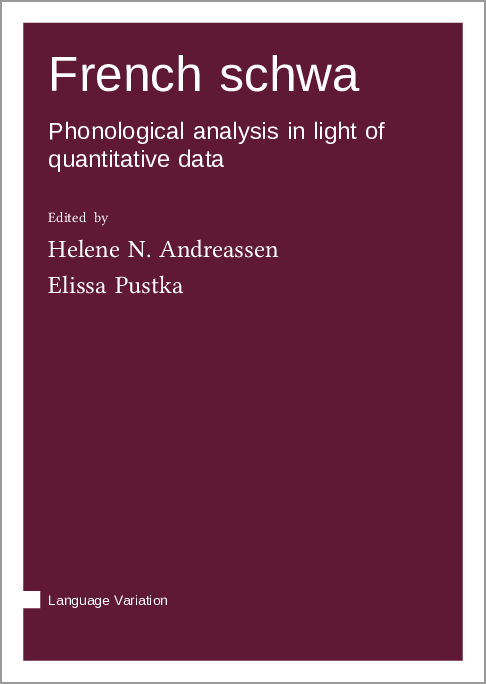We log anonymous usage statistics. Please read the privacy information for details.
Forthcoming: French schwa: Phonological analysis in light of quantitative data
Synopsis
Since long, schwa is, together with liaison, a widely discussed phenomenon in French phonology. What singles this French vowel out is that it does not constitute a schwa in the narrow sense, neither phonetically, in the sense of not being acoustically “neutral”, nor phonologically, in the sense of being target for, and not the result of, a reduction process. Rather, being broadly defined as a phonetically mid, front rounded vowel that alternates with zero, its many-faceted nature has aspects best explained with reference to phonetics, morphology, lexicon, and orthography. In addition, its alternation, as well as its temporal and spectral characteristics, have proven subject to regional, social, stylistic, situational, and medial variation. Whereas the study of large spoken corpora in the last decades has completely revised the analysis of French liaison, an overall, data-driven debate on how to formally account for the rich complexity observed for French schwa is still a desideratum. The present volume aims to contribute to filling this lacuna by introducing new analyses of schwa on the basis of studies of large data samples from a variety of recently collected corpora of spoken French.
Chapters
-
Introduction: French schwa in the 21st centuryWhy combining quantitative data analysis with theoretical models is a step forward
-
From diachrony to synchronyThe French Schwa between stability and instability
-
Stabilizing schwa in V#C_C in reading data from the Paris regionThe interplay of linguistic and social factors
-
Frequency effects on French schwaNew insights from Parisian newscasters’ speech
-
Levelling of schwa in Southern FrenchA reexamination of grammar-internal and grammar-external forces
-
Schwa in internationalismsTrue or false friends in French as a foreign language?
-
The duration of word-final schwa in Southern FrenchA corpus-based analysis
-
Why schwa is not a phoneme in (non-southern) French



